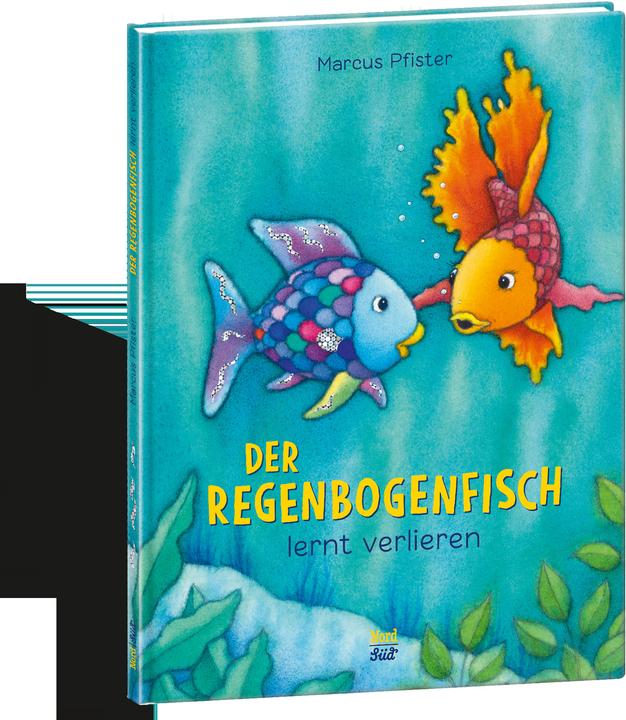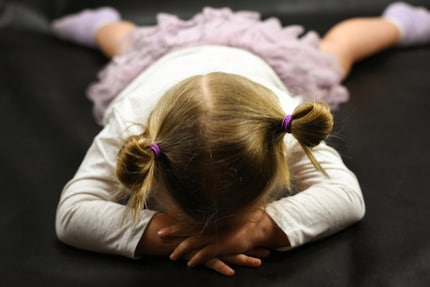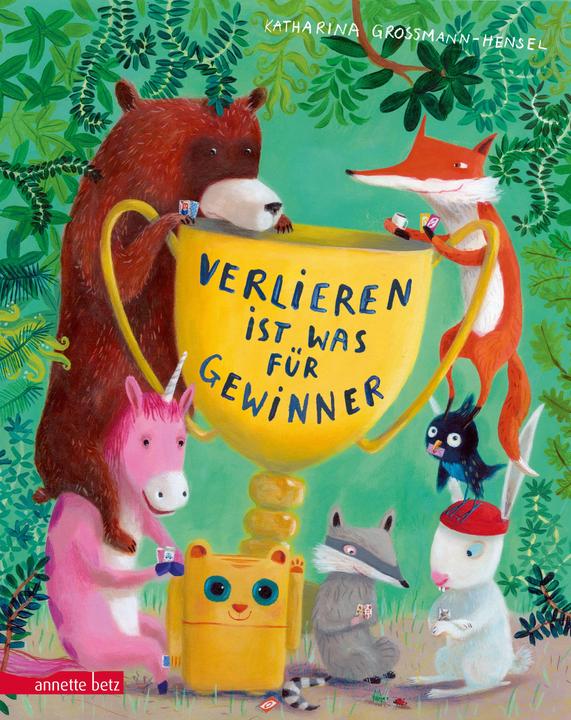

When your child loses the game – and their temper along with it
The scenario is all too familiar for any family: a child loses a family board game, causing what was planned to be a cordial afternoon to descend into temper tantrums and bad moods all round. In this interview, parenting consultant Maya Risch(linked site in German) reveals why kids have to learn the art of losing, and when it’s okay to let your kids win.
You’ve managed it again at long last: the whole family is gathered around the big dining table in the living room, an array of games, snacks and drinks at the ready. Everything has been set up for a cosy afternoon of games with your loved ones. And then it happens. After barely half an hour, this idyllic family scene dissolves into thin air. Searing with rage, your son sweeps the game pieces off the table and runs screaming into his room. The sound of his door slamming loudly signals the end of this Sunday afternoon, which was intended to be so peaceful.
Sound familiar? No wonder. We all know a thing or two about board game sessions that spiralled into quarrels and bad moods because someone at the table – in the worst-case scenario, you – was a sore loser. Things can get heated quickly – especially when kids are involved. The reason? Children usually have to learn the art of losing first. In this interview, Maya Risch (linked site in German), parenting consultant and mother of two teenage sons, reveals why children need to learn to lose, whether it’s okay to intentionally let them do so, and whether she’d describe herself as a good loser.
Maya Risch, you yourself have two sons. Are they both equally good losers?
Maya Risch: No (laughing). While the younger one found it easier, the older one had a hard time losing. I’m deliberately using the past tense because that’s how it was when they were kids. Since then, my oldest has also learned to lose – mainly thanks to team sport.
Why are some children better losers than others?
I think losing works the same way as other character traits. In other words, everybody’s personality is different. I see that first-hand in my work as a kindergarten teacher. On one hand, some children are very competitive, while, on the other hand, some just don’t find winning that important.

That begs the question: where’s the line between healthy ambition and destructive competitiveness?
You’re right to say that there’s such a thing as healthy ambition, which drives us to succeed and to achieve our goals. Where things get unhealthy is when the desire to win becomes life’s sole purpose: when your entire sense of self-worth depends on coming out victorious every time.
What do you strongly advise parents against doing when a child flips out and gets angry during a game?
In general, I’ve found that I’m much better at dealing with angry children in my work as a kindergarten teacher than I was at dealing with my own children. That’s because within our close relationships, emotions run high more quickly. In addition, we as parents expect and envision more when it comes to our own children’s behaviour. If a child gets angry during a game, you should never laugh at them, yell at them, or ridicule them, let alone punish them.
So is it better to comfort them instead?
It depends what you mean by that. Saying things like «hey, come on, it’s just a game» makes things worse because the child doesn’t feel like they’re being taken seriously. After all, once a child is angry, you can’t reach him or her with rational arguments. It’s more helpful to give the child the words to name their feelings.

So what would be the right approach?
I didn’t always react perfectly, either, and I’d deal with one or two things differently today. The main problem is expectation – namely the expectation to have a lovely time with the family. If this togetherness ends in an argument, it’s a huge disappointment. On the other hand, if you anticipate that the kids could get frustrated and that this is normal, you find yourself in a better position.
Even then, a tantrum is a tantrum. What’s the right thing for me to do as a parent?
The first thing you should do as a parent is try to stay calm. This is where your own ability to self-regulate is required. It’s easier to stay calm when you’re aware that your child can’t self-regulate well yet, and that in a certain sense, you can act as a lightning rod for their emotions. Basically, we should teach our kids that it’s okay to lose, and that doing so doesn’t reduce their worth.
And how exactly can we communicate this to our children?
There are certainly lots of options. One way could be to use a calm moment to address the topic of winning and losing and make your attitude towards it clear – that both winning and losing are part of life, and that it doesn’t have anything to do with us as people. Whoever wins or loses is partly down to sheer luck.
What’s unhealthy is when the desire to win becomes life’s sole purpose.
I myself am a miserably sore loser. How important are parents as role models?
It’s like with anything: young children in particular learn by imitation, which they do by observing their parents a lot. The same goes for play. If we stay cool despite losing, we can make a lasting impression on our kids and give them a model for how it can be done.
Is it okay to let children win?
That depends on different factors, including the type of game, the age of the child, and the situation. Let’s take football as an example. Adults are better than children at every aspect of the game. If you don’t let kids win once in a while, there’s a danger that they’ll lose interest in the game. However, in games which are largely won and lost by chance, I don’t see the point in letting your children win. Under no circumstances should the motivation to «help out» be driven by a wish to avoid conflict. At the end of the day, they have to learn how to lose.
But why is that?
I asked my thirteen-year-old son that question especially for this interview. He answered that people who haven’t learned how to lose don’t have any friends left. He’s right. Having the ability to lose means being able to tolerate a high level of frustration and having good self-control – qualities that are useful throughout life. Ultimately, it’s about staying motivated in the face of defeats and setbacks and pushing on. What’s more, it’s generally easier to get involved in new things if you’re not afraid of failure.
You’ve been a kindergarten teacher for 20 years. Are children today better or worse losers than children were in the past?
It’s difficult to give an opinion on that, but I imagine that children and teenagers today have a hard time losing.
Why?
The fact that everything’s digital nowadays has made people more comfortable. They’re used to everything working immediately at the press of a button, which can impede our ability to tolerate frustration. I also think it’s possible that many computer games built on reward systems can crank up young people’s competitiveness to a disproportionate level. But that’s just what I personally suspect.
Speaking of «personal»: are you a good loser yourself?
Hmm, it really depends. There are games I have trouble with. Especially games involving fighting or tough negotiations. Like the game «Settlers». I much prefer playing games that require co-operation and team spirit: for example, the game «The Crew», where you have to complete a mission together, or the card game «Hanabi», where you have to team up with one another. After all, playing games is about having a good time together and nurturing relationships.
Do you recognise yourself or your kids in the situations described above? No problem! There are interesting, and above all, educational books for both children and adults on how to be a better loser. Maybe it’s high time that I, too, take a deep dive into the issue.
Maya Risch is a family counsellor, Familylab(linked site in German) seminar leader and forest kindergarten teacher. She lives in Oerlikon, Zurich with her husband and two sons.
Half-Danish dad of two and third child of the family, mushroom picker, angler, dedicated public viewer and world champion of putting my foot in it.
Interesting facts about products, behind-the-scenes looks at manufacturers and deep-dives on interesting people.
Show all




